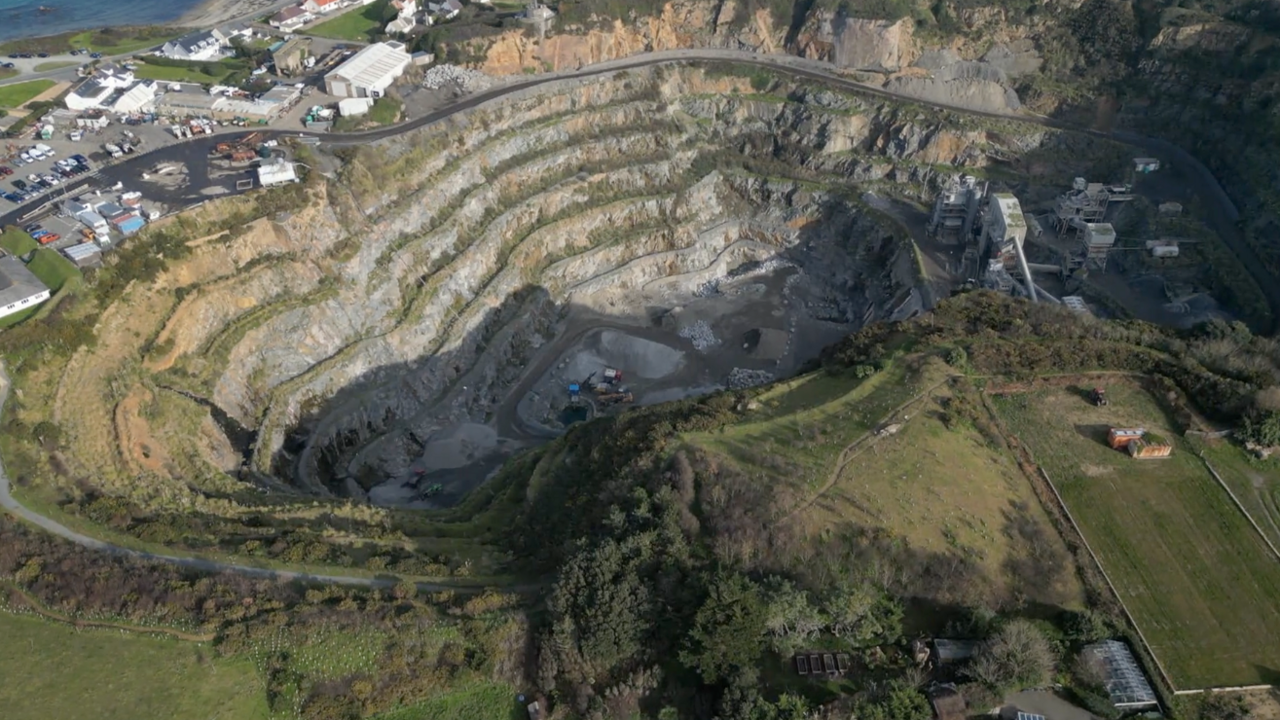Dry spring prompts water warning for islanders
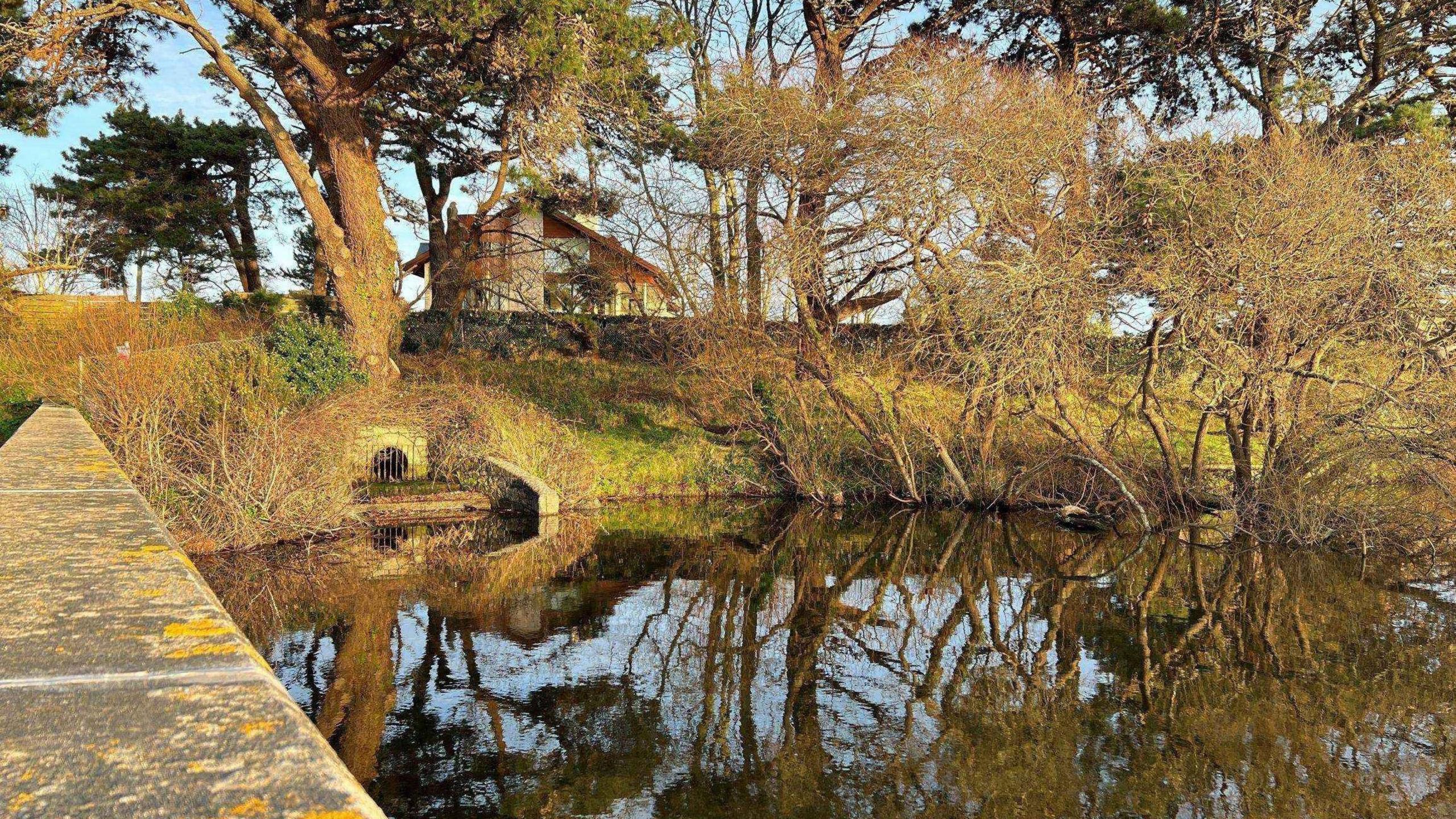
There are no currently no restrictions on water usage but reserves are below average
- Published
Channel Islanders are being asked to think twice about their water usage after a particularly dry spring.
It was the warmest spring on record for Jersey, according to the Jersey Met Office, and also the third driest for the island since records began in 1894.
In Guernsey, it was the second warmest spring but - since May was slightly wetter - it was only the 11th driest.
Water companies have said reserves are now below average in both islands.
'Minimise wastage'
In Jersey, the water company said it was "cautious but not concerned" even though it was prepared to use the desalination plant if needed later in the summer.
It said reservoirs were 89.1% full, 5% below the five-year average and 3% below the 10-year average.
Mark Bowden, head of water resilience for Jersey Water, said when the island last experienced drought in 2022, the company was at or around the average capacity of water supply at this time of year.
Mr Bowden said while it was not looking at introducing formal water restrictions he encouraged customers to minimise wastage.
He said he had not ruled out introducing restrictions later in the summer.
'Think twice'
Guernsey Water said the island's water storage levels were 3% below what it was "comfortable with".
Recent data from the utility showed levels were at around 91.5% which was around 10 days' supply below its optimal levels.
While there were currently no restrictions, Guernsey Water asked islanders to think twice about if they needed to water their gardens or wash their cars and to practice water saving ideas.
The utility said it would be posting weekly updates on storage levels.
It was announced recently that only a limited amount of water could be used from the island's largest raw water storage reservoir due to traces of a pesticide being found.
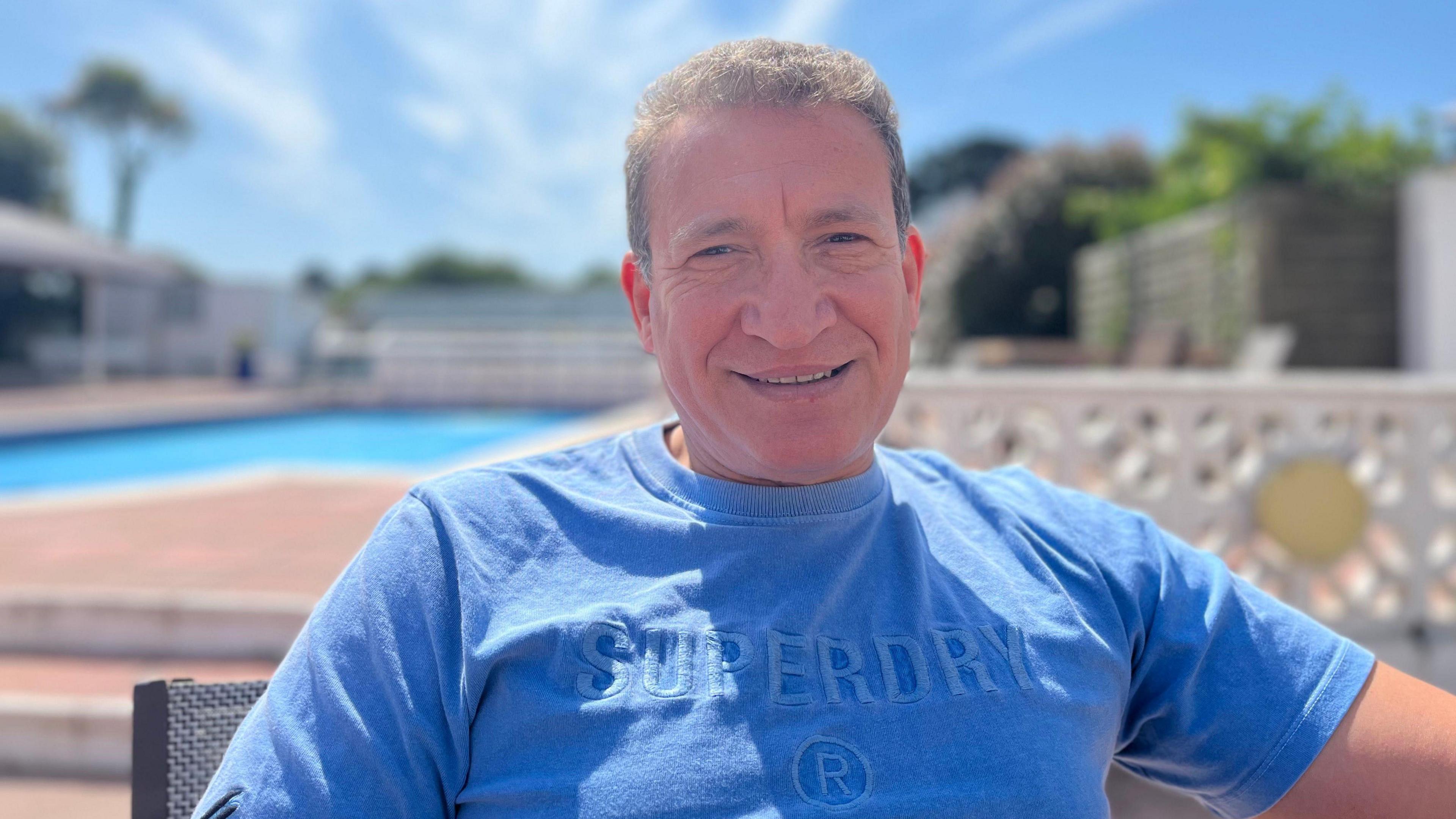
Hotelier Ashraf Elsergany says he constantly has to refill the hotel pool
Ashraf Elsergany, managing director of Saints Bay Hotel, said it could be difficult to manage water usage at a hotel.
The hotel has 35 bedrooms, 12 rooms for staff accommodation, a swimming pool, bar and restaurant, all of which need to use water.
Mr Elsergany said, as a hotel, they could not ask customers not to use water but they could ask them to "use it sensibly".
He said they continued to "fill up the swimming pool daily" due to evaporation from the sun and a need for more water after the daily chemical checks.
Mr Elsergany saids that if any restrictions were to come into place they might have to try "negotiate" how it would work with their hotel.
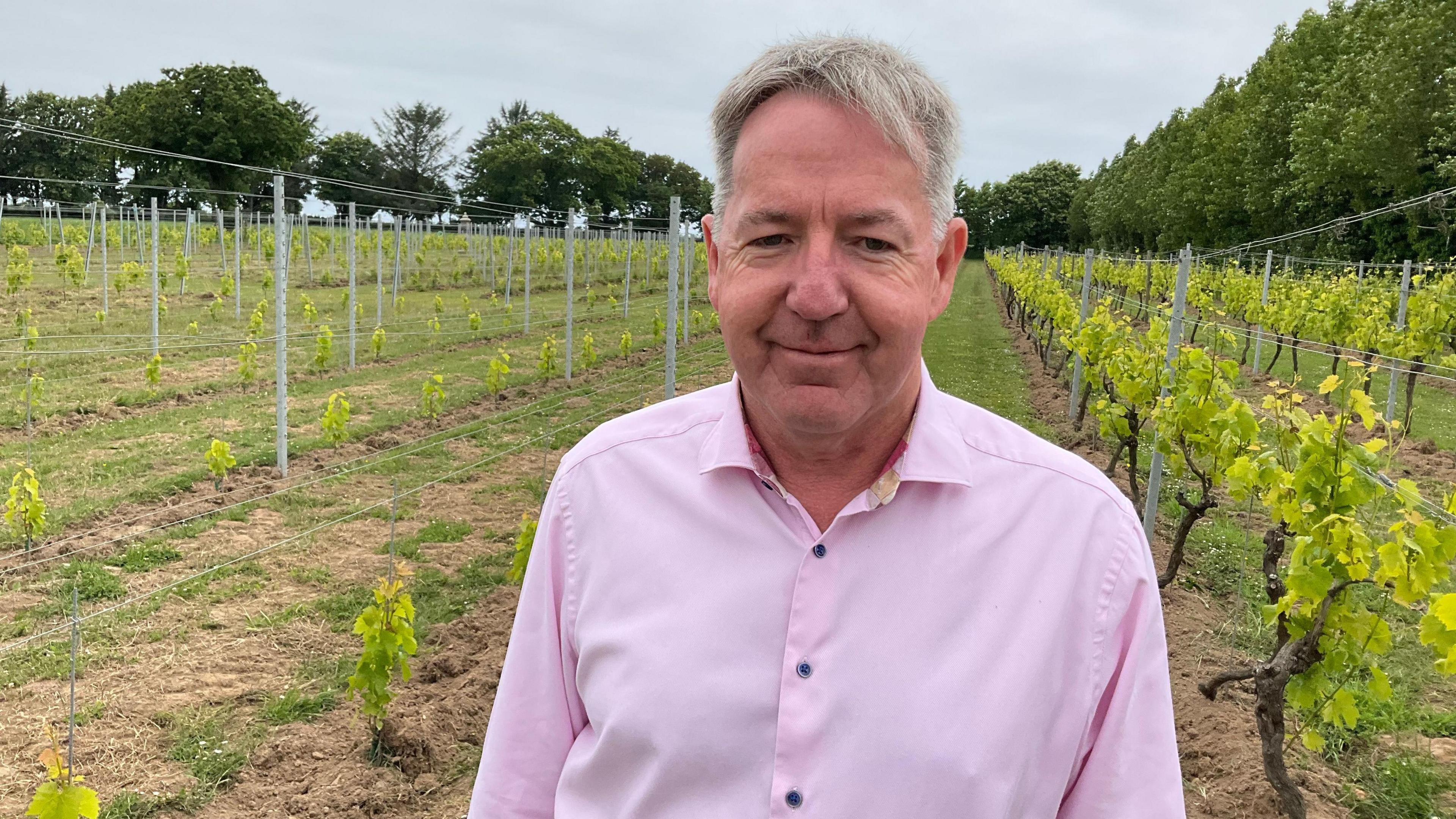
Tim Crowley from La Mare Wine Estate says the dry weather has been quite useful
La Mare Wine Estate in Jersey, which grows grapes and apples, has been faring well despite the dry weather.
Managing director Tim Crowley said the young vines needed a lot of watering but mature ones had very long roots which searched for water underground.
Mr Crowley said there was a "plus and a minus side" as they get a lot less disease in dry weather and were in a "much better than average" place at the moment.
In 1996 they put in underground tanks which had the capacity to collect 30,000 litres of rain water and this was topped up from a borehole when needed so the business has access to a large amount of free water.
Correction 13 June: This story was amended on the day of its publication to clarify Guernsey's supplies were 10 days below their optimal level rather than there being 10 days supply remaining.
Follow BBC Guernsey on X, external and Facebook, external. Follow BBC Jersey on X, external and Facebook, external. Send your story ideas to channel.islands@bbc.co.uk, external.
- Published26 August 2022
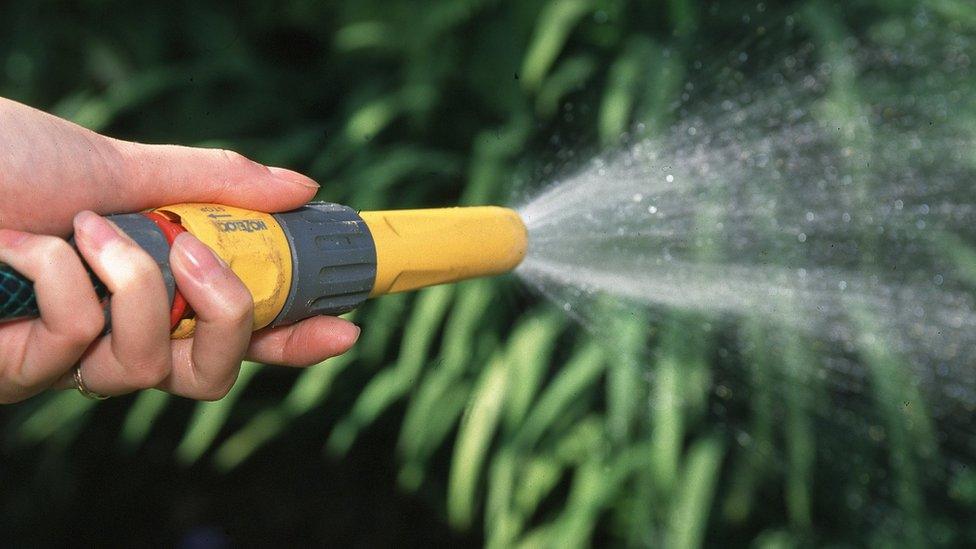
- Published2 May
